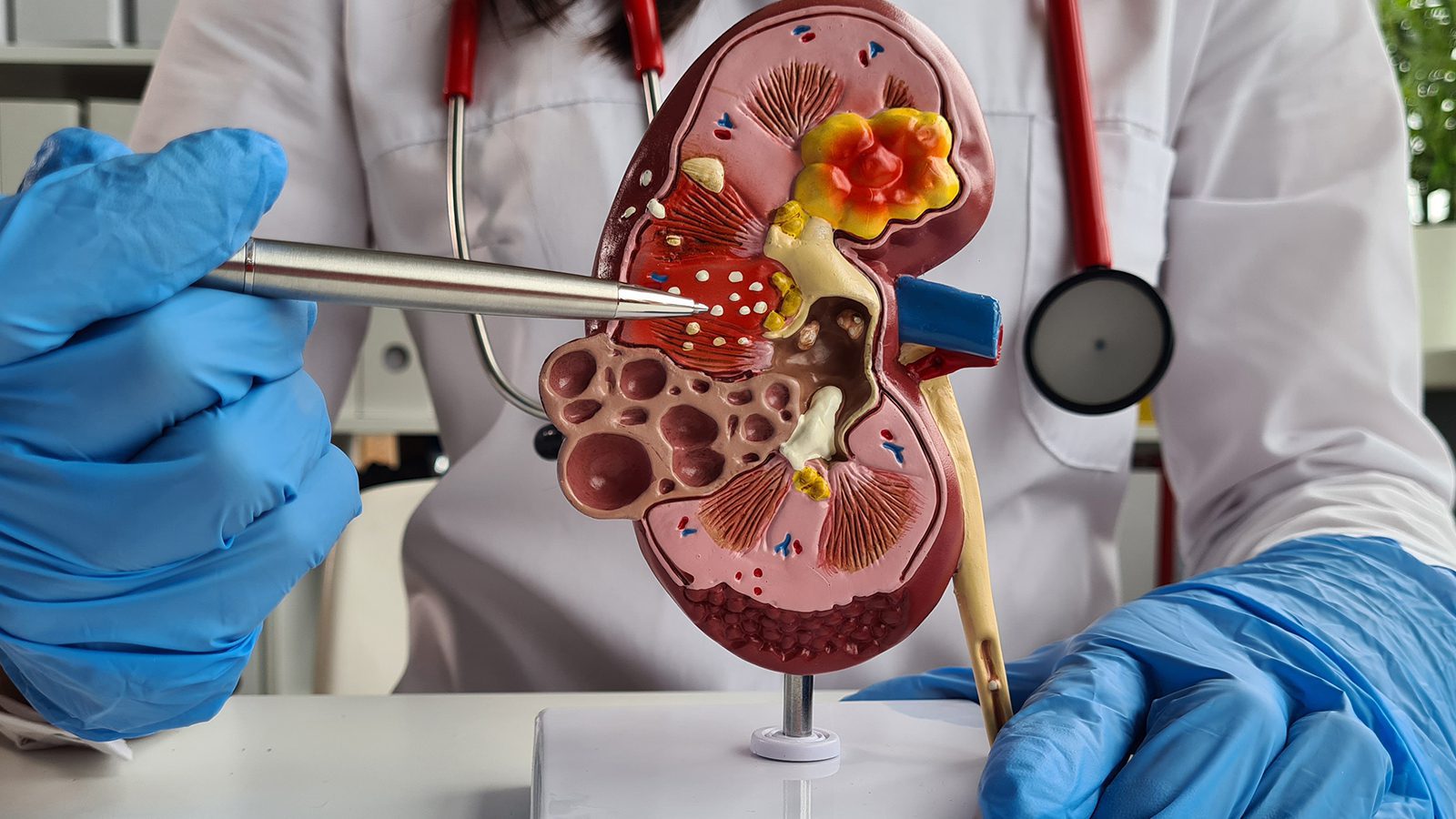Did you know that around 10% of people in the US will suffer from kidney stones during their lifetime? In some countries, such as Saudi Arabia, as much as 20% of the population experiences kidney stones. Scientists believe this painful condition’s increasing incidence and prevalence is due to poor water intake, unhealthy eating habits, and rising global temperatures. As the planet warms, more people are at risk of dehydration and heat strokes, increasing the likelihood of kidney disease.
Kidney stones occur when the minerals and salt content in the kidneys begin to harden and crystallize. Usually, this happens due to a combination of factors, such as dehydration, excessive salt consumption, or consuming high amounts of protein. As the materials harden, they transform into stones in the kidneys. Then, the stones travel from the kidneys to the bladder and urinary tract, often getting stuck in the ureter. This can cause severe pain in the sides, back, abdomen, and groin.
Kidney stones can range in size from a chickpea to a golf ball and may require medical intervention. Usually, smaller formations pass with no problem, but larger stones typically need surgery for proper removal. While this condition may seem scary, you can utilize preventative measures to avoid kidney diseases. Read on to find out what causes this notoriously painful condition and how you can lower your risk of developing it.
7 Common Causes of Kidney Stones
1. Not drinking enough water.
One of the leading causes of kidney stones is dehydration since your kidneys need water to filter out toxins. When your kidneys don’t receive enough water, it causes calcium and other minerals to accumulate. These materials can cause the formation of hard deposits in concentrated urine and clog the kidneys with muscle proteins (myoglobin). Inadequate water intake may also lead to urinary tract infections because of waste buildup.
2. A diet high in animal protein.
Studies have found that consuming large amounts of animal protein, such as red meat, poultry, eggs, and seafood, could contribute to kidney stone formation. These foods cause an increase in uric acid levels, which is produced when the body metabolizes protein. If you have too much acid in the urine, it can cause tiny crystals to form.
Also, animal proteins reduce urinary citrate, a compound that helps prevent kidney disease. Finally, animal products increase the urinary excretion of oxalate, which interacts with calcium to form hard deposits in the kidneys.
3. Consuming too much salt.
Also, eating a high-sodium diet increases your risk of kidney stones because it boosts calcium levels in the urine. According to the National Kidney Foundation, sodium and calcium travel the same pathway in the kidneys, so eating high-sodium foods causes more calcium to leak into urine. Therefore, this increases the risk of kidney disease and stone formation.
4. Having a high sugar intake.
Studies show that dietary fructose and sucrose, often added to packaged and processed foods, may lead to kidney stones. This occurs because fructose alters urinary metabolism and pH and affects oxalate levels. Also, people with metabolic syndrome or those suffering from heat stroke have a higher risk of developing kidney stones when consuming fructose.
5. Exercising too much or too little.
While it’s necessary to exercise to maintain health, overdoing it may lead to conditions like kidney stones. Losing water through sweating leads to lower urine output and dehydration, which causes stone-forming minerals to settle in the urinary tract. However, exercising too little can have the same effect for different reasons. A sedentary lifestyle can increase the risk of metabolic disorders like obesity and diabetes linked to kidney disease.
6. Having a family history of kidney disease.
Genetics also contributes significantly to the likelihood of kidney disease, as studies show that 35-65% of people with kidney stones have a family history.
7. Obesity, diabetes, and other metabolic disorders.
As we said above, having certain health conditions like obesity, diabetes, and heart disease increase the risk of kidney disease. Research shows that kidney stones disproportionately affect people with metabolic syndrome, likely due to increased inflammation and tissue damage. However, more research is necessary to confirm these findings.
Four Ways to Prevent Kidney Stones
According to the National Kidney Foundation, you can prevent kidney stone formation by:
- Increasing your water intake. Drinking enough fluids helps your kidneys filter out waste products and minerals like calcium more efficiently. They recommend drinking at least 12 glasses of water daily and even more during heavy exertion or hot weather. Avoid sugary beverages like soda and caffeinated drinks such as coffee, as these can cause dehydration.
- Eating a healthy, balanced diet. Generally, it’s best to eat a diet rich in vegetables, fruits, nuts, seeds, grains, and legumes. Also, limit or avoid excessive salt, sugar, and animal proteins, as these can alter your electrolyte balance and contribute to kidney stones.
- Exercising daily and ensuring you’re staying hydrated. Exercise can prevent numerous diseases and ensure your bones and muscles remain strong. Try to engage in moderate-to-vigorous activity at least three times per week for 30 minutes. A combination of weight lifting and cardio will help your kidneys function optimally and improve overall health. Also, it’s essential to walk daily for at least 30 minutes for heart health.
- Feel free to eat calcium. While calcium oxalate stones are the most common type of kidney stone, they’re not caused by eating calcium. Instead, they occur from eating excessive salt and not drinking enough water. People with the lowest dietary calcium intake have a higher risk of developing kidney stones because it increases urinary calcium and oxalate.
Final Thoughts on Causes of Kidney Stones (and How to Prevent Them)
If you’ve ever had a kidney stone, you know how painful and debilitating it can be. Research shows that more people suffer from them due to sedentary lifestyles, poor dietary habits, and global warming. However, you can easily prevent them by making lifestyle changes such as eating more fresh foods, exercising often, and lowering your salt intake.

















 Community
Community

